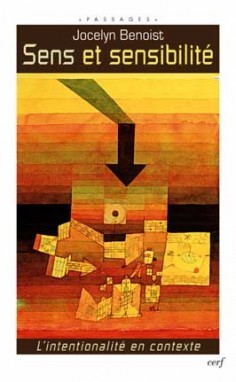Depuis un siècle, un certain nombre de philosophies, du mouvement phénoménologique au sens doctrinal du terme au pragmatisme et aux tentatives de " phénoménologies linguistiques " développées par un Austin ou un Wittgenstein, ont pu, en des sens différents, caresser l'idée que penser était une expérience –; ce qui ne veut pas dire qu'il y ait expérience de la pensée pour elle-même, ce serait une autre question. Jocelyn Benoist essaie ici de tirer toutes les conséquences d'une telle conception " expérimentale " de la pensée, explorant les voies multiples selon lesquelles celle-ci peut être otage du monde. Il esquisse ainsi une dialectique de l'intentionalité, aux prises avec la délimitation de son contexte : une tâche qui s'avère toujours en définitive interminable, le monde s'y révélant toujours à la fois familier et indifférent. Le sens donné aux choses auxquelles la pensée est, selon cette conception, essentiellement rapportée n'annule en effet jamais complètement le silence constitutif de leur être de choses. -- Contemporary philosophy generally recognizes that the mind has an intentional structure; one which is assumed to be fundamentally oriented toward surrounding things, and defined by that orientation. Unfortunately, the same philosophy does not always investigate closely enough the essentially normative character of that orientation, or the conditions of its normativity; which is not simply normativity-for-the-world (applied to the world), but normativity-in-the-world. In this book, Jocelyn Benoist furthers the reflection engaged in previous work (Les limites de l'intentionalité, Paris, Vrin, 2005), at the crossroads of those domains represented by the philosophy of the mind, the philosophy of language and ontology; and combining tools from phenomenological (Husserl, Heidegger, Merleau-Ponty) and analytical (Frege, Wittgenstein, Austin) traditions. He presents an initial systematic reflection on the contextual - and so limited – character of all intentionality, striving to draw all possible conclusions from the fact that meaning cannot be constructed except by calling upon sensibility, which lends its resources of experience and constitutes a background for that meaning, as much as an object. This book explores the possibilities and the limits of the notion 'context' to describe the mind's engagement in the world. On that basis, it redefines the very terms of the ontological issue: that of the 'real' - without which meaning is impossible - yet which must essentially remain, in a certain sense, independent of that meaning.




